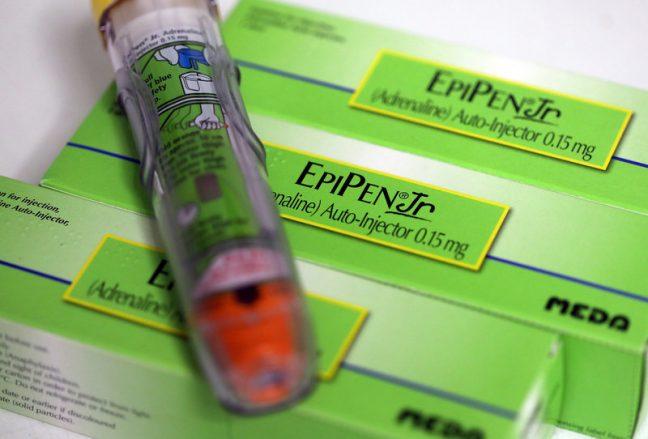Rep. Robyn Vining, D-Wauwatosa, is currently working on a proposal to reform how patients pay for epinephrine in Wisconsin and mandating that all Wisconsin ambulances are equipped with epinephrine dispensers.
According to the Food Allergy Research & Education, “epinephrine is a safe and highly effective medication that can reverse severe allergy symptoms.” Epinephrine pens and equivalent products are used to inject a specific dosage of epinephrine into patients who are suffering from a severe allergic reaction. The Center for Disease Control and Prevention has reported that food allergies have risen in children by 18% from 1997 to 2007.
This bill is in response to skyrocketing costs of epinephrine pens in recent years. According to the U.S. Federal Drug Administration, the first generic version of EpiPens was approved in 2018, whereas the FDA approved the original EpiPen brand epinephrine pen back in 1987.
UW School of Pharmacy new master program, career readiness for students
Since EpiPens, created by the company Mylan, were the first — and at times the only epinephrine auto-injector product on the market — the lack of competition meant the company had a lot of control over the market price. Vining has seen prices go from $15 to over $100 firsthand while trying to pick up her child’s epinephrine prescriptions.
“Our bill would allow pharmacists to fill the prescription with one of the therapeutic equivalent drug products that do the same thing as a name brand EpiPen or a generic equivalent,” Rep. Vining said. “[The equivalent products] use a different injection mechanism that [is] less expensive.”
Brands like Teva Therapeutics have created a therapeutic epinephrine auto-injector that works the exact same as Epipens but at a cheaper cost to consumers. Other brands, like Auvi-Q, have also been introduced in the epinephrine market and provide a product that is smaller, easier to use and has a lower price.
University of Wisconsin-Madison freshman Zawadi Hester has had a prescription for epinephrine pens since she was a child for her allergy to cashews. Her family, like many others, has been affected by the price increase of epinephrine pens in recent years.
“In high school, I typically had two EpiPens — one for school and one to keep at home. But at college, the two EpiPens I have are now both expired,” Hester said. “Since it’s so rare I have to use them, I don’t want to spend a ton of money to buy another if I might never even use it.”
City of Milwaukee sues opioid manufacturers and distributors
According to the EpiPen website, it is not recommended to use an expired EpiPen. It can be less effective or deliver the wrong dosage of epinephrine, but for some families, it is a risk they are willing to take due to rising costs of EpiPens. This bill hopes to eliminate that choice.
“What is really important is families not having to choose between groceries and medicine,” Rep. Vining said.
In addition, the proposed legislation will mandate all ambulances across Wisconsin are equipped with epinephrine dispensers. According to research conducted by FARE, 200,000 people in the U.S. need medical care for allergic reactions every year. Another study by FARE shows that as of 2014, only 11 out of 50 states require ambulances to carry epinephrine at all times.
According to the Children’s Hospital of Wisconsin, a reaction can occur within seconds or up to an hour after exposure to the allergen, making it critical that when an ambulance responds to a patient in need, the responders can immediately administer epinephrine.
“Emergency responders can focus on quality care instead of worrying about the cost of purchasing and replacing epinephrine auto-injectors, especially in rural areas,” Rep. Vining said.
Vining said that the initial fiscal estimate of the plan to mandate epinephrine in ambulances across Wisconsin is between $187,500 to $343,750, which would be paid annually by the Department of Health. This would cover the cost of epinephrine and the dispensers for about 1,250 ambulances across the entire state.
“The number one concern for Wisconsinites is health care costs, and that includes prescription drug costs,” Vining said. “So long term, we need to drive the cost of healthcare, including prescription drug costs, down. Epinephrine is a life-preserving medicine that we want to be both accessible and affordable to Wisconsinites.”


















